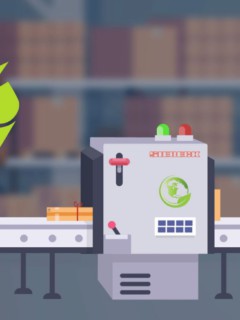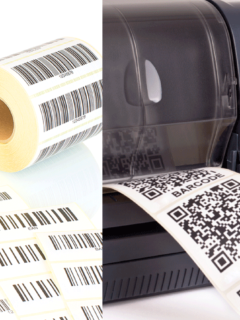In your private life, you know the saying: “While I’m here, why don’t I take … with me? Everything from one source often makes shopping easier. It saves time, distances and planning effort. This is not necessarily different for corporate purchasing, i.e. the procurement of all goods and services necessary to carry out the production process or the trading function (wikipedia). Fewer suppliers offering more? What are the advantages of buying “everything from a single source”?
What is supplier management?
Professional supplier management is an essential component for the success of a company. As a rule, the number of suppliers increases with the length of time a company has been in existence, the size of the company, the diversity of the product range or the complexity of the product. As soon as a company actively and systematically manages its relationships with its suppliers, it is called supplier management.
Source : www.business-wissen.de/
Which processes are part of supplier management?
Strategic supplier management initially includes researching, comparing and testing the potentially best suppliers as well as supplier selection. A central task is then supplier evaluation, i.e. the continuous assessment of existing suppliers and service providers based on KPIs such as quality of goods, error rate, problem-solving behaviour, reliability, adherence to delivery dates and many other aspects (supplier evaluation; e.g. based on ABC analysis) as well as the search for optimisation possibilities of existing contracts and relationships(supplier management). Consistency and stability are essential factors in good supplier relationships. An essential task of supplier relationship management is therefore also the maintenance and development of existing relationships.
But the constant search for new, possibly more suitable partners is also part of supply chain management. This is because needs and requirements, legal framework conditions and customer demands are constantly changing.
What if you bought everything from just one supplier?
With a large number of suppliers, supplier management can become a real challenge, demanding a lot of know-how, time and money. Once you have found a partner with whom you can work well, one possible solution is so-called single source procurement. This means that you purchase a product, a product group or a whole range of products, even from different business units, from a bundled source.
What are the advantages of single sourcing?
The more you source from a single trader, the better your purchase prices usually are. At the same time, you save on shipping and transport costs, as deliveries are made centrally. By reducing the number of contacts and contact persons, communication with the remaining or the remaining contact person can be intensified, something that will pay off in the quality of the relationship. The closer and more personal the relationship between you and your suppliers, the higher the “involvement”: if there are problems, both sides see themselves as equally responsible and accountable. The closer the cooperation, the better you know and understand your partner’s processes. This way, in case of doubt, your supplier will also suggest acceptable solutions for you in case of bottlenecks (be it time or another resource) and special requests, without the need for much consultation.
In addition, the central role you have as a customer with your supplier gives you a certain negotiating power in pricing and in turn gives your supplier a certain planning security.
The disadvantages of single source procurement
Not to be dismissed out of hand: It creates a kind of dependency. If you rely on a single supplier (or service provider) for the procurement of entire groups of goods (or services) and this supplier then experiences delivery problems, this can seriously jeopardise your production processes. If a new supplier has to be found quickly (as a substitute), research and comparison are the first things to do. Often there is not enough time for this – often to the detriment of either quality or price. So it’s better to have several suppliers for one product or product group?
The disadvantages of multi-source procurement
Multiple suppliers for one product or product group? Reduces dependency. However, many suppliers unfortunately also mean a permanently high effort in supplier management, i.e. in terms of planning, communication, logistics and quality control. The lower order volume, divided among several suppliers, weakens your negotiating position on price. It becomes really difficult with products where your needs are not “standard”. If you cannot fall back on “standard” processes, i.e. as soon as modifications and adaptations are necessary, such as packaging specially adapted to the size of your product, a small order volume is really expensive.
What if you bought everything from RAJA?
It is important to weigh up the advantages and disadvantages of both approaches to supplier management. And to find the (intermediate) solution that suits your company and the current situation.
RAJA makes it easy for you – if you like. We bundle the advantages of both approaches in purchasing for you. While you have a single supplier for a large number of products or product groups for several business areas, we maintain intensive customer-supplier relationships with a large number of suppliers.
YOU talk to us. And we talk to many!
YOU only talk to one supplier. WE are in close contact with a large number of suppliers and obtain our products from many, for the absolute most part European sources. If, for example, one of our cardboard suppliers is temporarily unable to deliver, you as a customer will hardly notice. Because: Due to our enormously large purchase quantities, we can obtain the same product at the same controlled quality from one of our other suppliers. This minimises the risk for you as a buyer enormously.
YOU only talk to one supplier. And the supplier is fully attuned to your processes. Advises you on the basis of your previous orders, gets to know you better with every contact. A close and trusting business relationship develops and offers you all the advantages of single-source procurement.
YOU only talk to one supplier. And we offer you a huge range of standard products, for example in the field of packaging. However, should you still not find the right product, our specialists will plan customised packaging for you based on your specifications.
YOU only talk to one supplier. And in addition to packaging, we also cover many other areas of your company. Because our range also includes the working area
- Warehouse with, for example, transport equipment and transport trolleys, storage boxes and storage shelves, work tables and standing aids, conveyor technology and roller conveyors …
- Office supplies such as whiteboards and letter scales, stationery and desk accessories, folders and mailing bags …
- Industrial safety and hygiene with wiping cloths and cleaning agents, hygiene products for the washroom and toilet, floor mats and hoovers …














